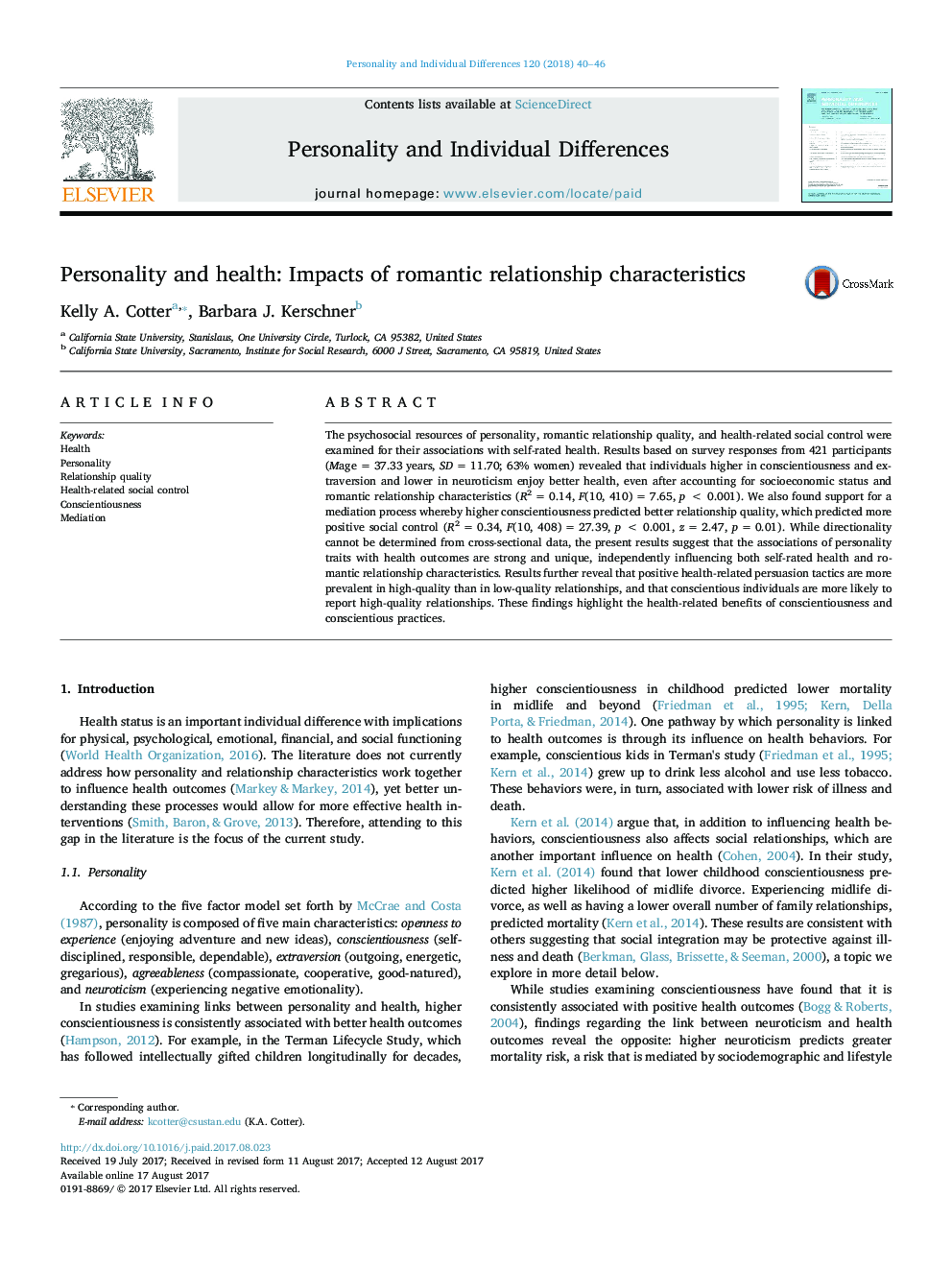| Article ID | Journal | Published Year | Pages | File Type |
|---|---|---|---|---|
| 5035514 | Personality and Individual Differences | 2018 | 7 Pages |
â¢Personality, romantic relationship quality, and health-related social control impact healthâ¢Specifically, higher conscientiousness, higher extraversion, and lower neuroticism are related to better self-rated health.â¢Relationship quality mediates the association of conscientiousness to positive social control.
The psychosocial resources of personality, romantic relationship quality, and health-related social control were examined for their associations with self-rated health. Results based on survey responses from 421 participants (Mage = 37.33 years, SD = 11.70; 63% women) revealed that individuals higher in conscientiousness and extraversion and lower in neuroticism enjoy better health, even after accounting for socioeconomic status and romantic relationship characteristics (R2 = 0.14, F(10, 410) = 7.65, p < 0.001). We also found support for a mediation process whereby higher conscientiousness predicted better relationship quality, which predicted more positive social control (R2 = 0.34, F(10, 408) = 27.39, p < 0.001, z = 2.47, p = 0.01). While directionality cannot be determined from cross-sectional data, the present results suggest that the associations of personality traits with health outcomes are strong and unique, independently influencing both self-rated health and romantic relationship characteristics. Results further reveal that positive health-related persuasion tactics are more prevalent in high-quality than in low-quality relationships, and that conscientious individuals are more likely to report high-quality relationships. These findings highlight the health-related benefits of conscientiousness and conscientious practices.
